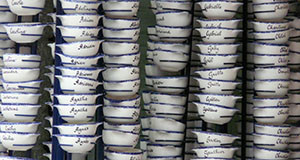We never name; we classify.
Every year, several hundred thousand students in their last year of upper secondary school in France take the national leaving examination, the baccalauréat, familiarly called “le bac”. In 2023, approximately 749,000 students took the exam.
Since the early twentieth century the “bac” has evolved from a bourgeois test to a national rite of passage involving three-fourths of each generation. For each candidate, there is a “before” and “after” the bac. But this is no egalitarian rite. Unequal proportions of managers’ children and workers’ children are enrolled in the different types of study programmes: general, technological or vocational. Different proportions of boys and girls, of students ahead of their year and students who have repeated a year, are found in the different “S” (science), “L” (literature or humanities), “ST12D” (management sciences and technologies) or other disciplinary “series”. And the results will intensify these inequalities by ranking candidates individually in terms of merit, marks and honours.
The bac, then, unifies a given age group while differentiating its members in the extreme. Each candidate is distinguished from and ranked in relation to every other by type of study programme, “series” or disciplinary emphasis, particular high school (lycée), marks, electives chosen, honours or lack thereof. The results are not presented in aggregate form—“The S1 class passed its bac”—but rather individually: “Justine Dupont: S series, general baccalauréat, Versailles school district, Lycée Hoche, high honours.”
Baccaulauréat [France’s national high school leaving exam and diploma] and first names
Individual results bring differences to light; rates of high honours and of failure vary between high schools, school districts, series, etc. First names also reveal differences. From 2012 to 2015, for example, 17% of Louises who took the bac (and consented to divulge their results) obtained it with high honours, while only 4% of Melissas received high honours.
These differences by first name are stable from one year to the next, whereas the proportion of students awarded the baccalauréat with honours increases from year to year. Clémences receive honours at a rate of 11% to 15%; Jeremy’s from 3% to 6%.
The differences are of course not due to the first name itself: even if all Juliettes were called Myrtille (blueberry), Prune (plum) or Banane they would have obtained the same results. And yet parents do not choose first names at random, and academic success is in part related to social origin. Paris managers do not have the same tastes in first names as Breton office workers. Marseille manual workers do not choose the same first names as Marseille occasional entertainment industry workers. Antonin, Diane, Augustin and Théophile do not attend the same high schools, take the same series or the same study programmes as Bryan, Kelly, Anissa, Mehdi and Sofiane—because they do not have the same parents.
First name: an indicator of social background
This is because to name is to classify, as Claude Lévi-Strass put it. We never name. Rather in giving a person a first name as a function of their characteristics (gender, age) or of characteristics we would like them to have, we classify the other, and if we think we are naming freely—that is, as a function of our character, we classify ourselves [Claude Lévi-Strauss, La pensée sauvage; in English, The Savage Mind].
Contact: Baptiste Coulmont
Online: June 2017
Updated: June 2024

